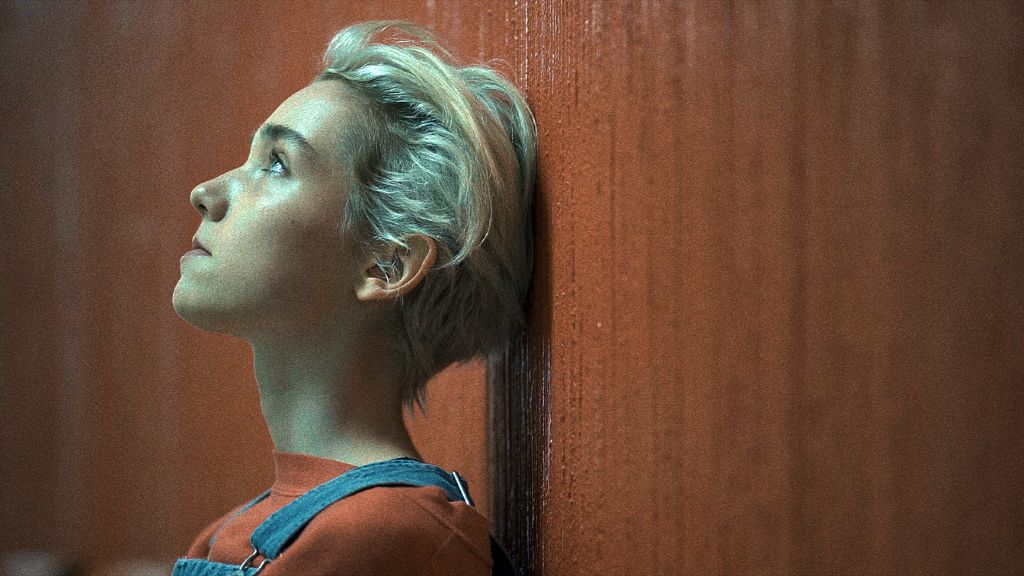
Come True: A Haunting and Thought-Provoking Exploration of Dreams and Identity
Rating: ★★★★☆
Come True is a mesmerizing and enigmatic sci-fi horror film that delves into the depths of the subconscious mind, blurring the lines between dreams and reality. Directed by Anthony Scott Burns and released in 2021, the movie takes viewers on a haunting journey filled with suspense, psychological intrigue, and existential questions. Combining atmospheric visuals, a haunting soundtrack, and a thought-provoking narrative, Come True offers a unique and unsettling cinematic experience.
At the heart of the film is Sarah, a troubled teenager seeking refuge from her nightmares by participating in a sleep study conducted by a mysterious research institute. As she delves into the world of dreams, the boundaries between her waking life and the subconscious realm become increasingly blurred. The movie explores the power of dreams and the psychological ramifications they have on our conscious existence.
Visually, Come True is a feast for the eyes. The cinematography captures a sense of eerie beauty, with dreamlike sequences that are both ethereal and unsettling. The film utilizes lighting, color palettes, and surreal imagery to create an atmosphere that oscillates between serene and nightmarish. The haunting soundtrack further enhances the otherworldly atmosphere, immersing viewers in a disquieting ambiance that perfectly complements the narrative.
The strength of Come True lies in its ability to evoke a sense of unease and disorientation. As Sarah delves deeper into her dreams, the film's narrative becomes increasingly abstract and open to interpretation. It invites viewers to question the nature of reality, the power of dreams, and the fragility of identity. The film leaves ample room for speculation, allowing audiences to form their own conclusions and engage in post-viewing discussions.
While the atmospheric elements of the film are undoubtedly captivating, the storytelling occasionally falters in pacing and clarity. Some narrative threads feel underdeveloped or ambiguous, leaving certain plot points unresolved. While this ambiguity may be intentional to reinforce the film's dreamlike nature, it can also leave viewers craving more concrete explanations.
The performances in Come True are commendable, particularly Julia Sarah Stone as Sarah, who delivers a nuanced and introspective portrayal of a vulnerable protagonist. Her journey into the realms of dreams is captivating, and her portrayal effectively conveys the character's inner turmoil and growing sense of paranoia.
Come True succeeds in pushing the boundaries of the horror genre by focusing on psychological unease rather than relying solely on jump scares or gore. It poses existential questions and delves into the human psyche in a way that lingers long after the credits roll. While it may not provide definitive answers, the film's ability to provoke thought and leave a lasting impact is its true strength.
In conclusion, Come True is a visually striking and thought-provoking cinematic experience that explores the depths of dreams and identity. Its atmospheric visuals, haunting soundtrack, and the enigmatic narrative create an unsettling and immersive journey. Although the film's ambiguity and pacing may frustrate some viewers, those who appreciate abstract storytelling and psychological horror will find much to appreciate in this haunting exploration of the human subconscious.









